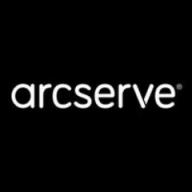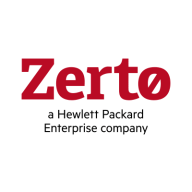Leverage disaster recovery with reliable support and cost-effective future-proof featuresZerto is straightforward to implement because it only requires the installation of an agent on the VMs designated for migration. A service, typically a VM, must also be deployed at the disaster recovery location. This entire process is simple and can be completed within three days. Zerto's near-synchronous replication occurs every minute, allowing for highly granular recovery points. This means that even if interruptions or malware disruptions occur within that minute, Zerto can restore to the last known good state, effectively recovering the entire setup to the latest backup. This capability ensures high data security and minimizes potential data loss. One of the main benefits of implementing Zerto is its data compression, which significantly reduces the load on our IPsec VPN. Zerto compresses data by 80 percent before transmitting it across the VPN, minimizing the data transferred between geographically dispersed locations. This compression and subsequent decompression at the destination alleviate the strain on the VPN, preventing overload and ensuring efficient data synchronization. Zerto simplifies malware protection by integrating it into its disaster recovery and synchronization features. This comprehensive approach eliminates the need for separate antivirus setups in virtual machines and applications. It streamlines our security measures and removes the need for additional software or solutions, resulting in an excellent return on investment. Zerto's single-click recovery solution offers exceptional recovery speed. Through the user interface, a single click allows for a complete restoration from the most recent backup within two to three minutes, enabling rapid recovery and minimal downtime. Zerto's Recovery Time Objective is excellent. In the past, if a virtual machine crashed, we would recover it from a snapshot, which could take one to two hours. With Zerto, the recovery process takes only five minutes, and users are typically unaware of any disruption. This allows us to restore everything quickly and efficiently. Zerto has significantly reduced our downtime. When malware affects our data, Zerto immediately notifies us and helps us protect other applications, even those not yet implemented with Zerto. By monitoring these applications, we can quickly identify and address any potential malware spread, minimizing downtime across our systems. Zerto significantly reduces downtime and associated costs during disruptions. Our services are unified, so in the event of a disruption without Zerto, even a half-day disruption would necessitate offline procedures. This would lead to increased manpower, service delays, and substantial financial losses due to interrupted admissions and other critical processes. By unifying service processes, Zerto minimizes the impact of outages. Zerto streamlines our disaster recovery testing across multiple locations by enabling efficient failover testing without disrupting live services. Traditionally, DR testing required downtime of critical systems, but Zerto's replication and failover capabilities allow us to test in parallel with live operations. This non-disruptive approach ensures continuous service availability while validating our DR plan, even in scenarios like malware attacks, by creating a separate testing environment that mirrors the live setup. This comprehensive testing provides confidence in our ability to handle real-world incidents effectively. This saves us over 60 percent of the time. Zerto streamlines system administration tasks by automating many processes, thereby reducing the workload for multiple administrators. This allows them to focus on other university services that require attention and effectively reallocate support resources from automated tasks to those requiring more dedicated management. Zerto is used exclusively for our critical services, providing up to a 70 percent improvement in our IT resilience.



